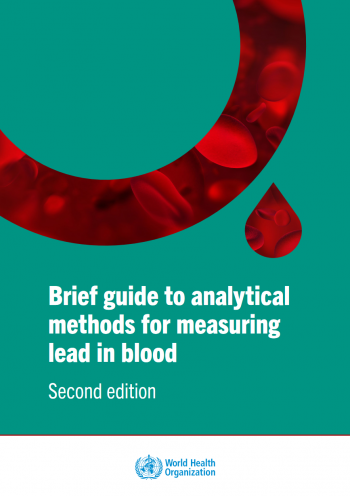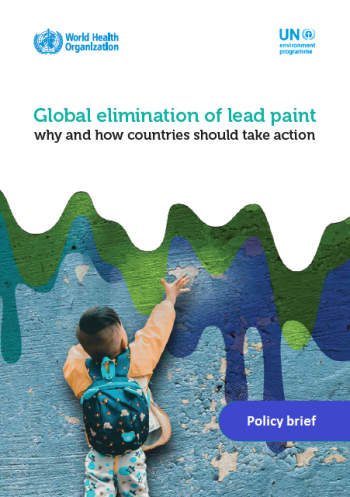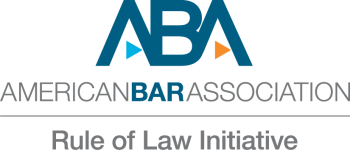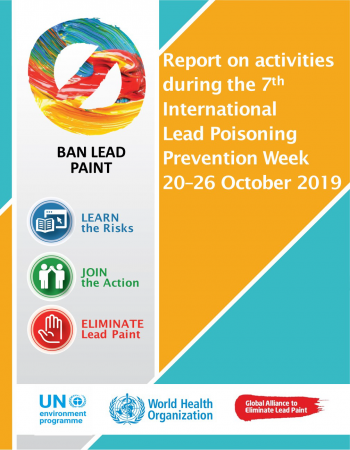Chemicals Without Concern
Towards safer products for our environment and health
The project Chemicals Without Concern focuses on two Emerging Policy Issues (EPI) from the Strategic Approach to International Chemicals Management (SAICM ): Lead in Paint; and Chemicals in Products, which present particular environmental and health challenges linking to the 2030 Agenda for Sustainable Development. The project also focuses on the need for knowledge management, information exchange and strategic planning to ensure concerted and coordinated action on all EPIs, and this website is one of the tools created to advance towards such goal.
Lead paint component of the "Chemicals Without Concern" project

The lead in paint component promotes regulatory and voluntary action by government and industry to phase out lead in paint. The project outcome is for at least 40 countries to legislate and implement legislation on lead paint. To achieve this outcome, the first project output will address the technical barriers in the manufacture of paints with no lead additives. At least 35 small and medium paint manufacturing enterprises (SMEs) in seven countries are expected to phase out lead from their production processes. Activities to achieve this output are:
- Provision of the draft technical guidelines on paint reformulation drafted by the National Clean Production Centre (NCPC) Serbia to the NCPCs in Ecuador, Peru, Colombia, China and Jordan as well as to the International POPs Elimination Network (IPEN) to work in Indonesia and Nigeria
- Assessment and selection of SMEs based on criteria set by NCPC Serbia and pilot testing of the paint reformulation guidelines
- Organization of events where alternative suppliers will be engaged
- Provision of policy advice to national governments to support the adoption of a lead paint law
- Finalization of the technical guidelines based on lessons learned and the provision of the final guidelines to the ICCM at its 5th session (Bonn, October 2020)
The second project output will address the barrier on lack of capacities in developing countries to introduce and enforce lead paint limits. The main activity is advocacy with governments for policy development and assistance in drafting lead paint laws. Activities to achieve this output are:
- Conduct of 4 regional workshops to provide an overview of the Lead Paint Alliance, the recommended actions and available advice to support the establishment of lead paint laws
- Drafting of country approach documents and provision of technical assistance by the project advisors. The documents express the needs, the types of support and the next steps to adopt a lead paint law in a country.
Chemicals in products component of the "Chemicals Without Concern" project

Component 2 on "life cycle management of chemicals present in products", focuses on chemicals of concern in three sectors (building products, electronics and toys) and how to minimize the adverse effects of chemicals of concern. The component is developing new tools and guidance to reduce the use of chemicals of concern in the building products, electronics and toys sectors and provides training and support for government and value chain actors to trial and adopt new guidance and tools.
The project will, therefore, accelerate the adoption of measures by governments and value chains to track and control chemicals in supply chains for building products, electronics and toys. It will address the following barriers: creating demand-led and market-based incentives for supply chains to act via public procurement and sustainable finance measures; developing quantitative life cycle assessment tools to compare chemical alternatives and avoid regrettable substitutions, and enhancing the ambition of and compliance with regulatory requirements on CoC.
Knowledge Management of the "Chemicals Without Concern" project

The third component explores ways to create, manage and disseminate knowledge on chemicals of concern. The knowledge platform chemicalswithoutconcern.org is a key tool developed within this component. The implementation follows a Knowledge Management Strategy that will be constantly updated throughout the project timeline. It will explore different tools and processes to better manage knowledge cycles, aiming at interlinking knowledge from multiple stakeholders. Communities of practice and new technologies such as artificial intelligence will be piloted to support collaborative and innovative exchanges.
Stakeholders
The project involves the following groups of stakeholders for a successful implementation:


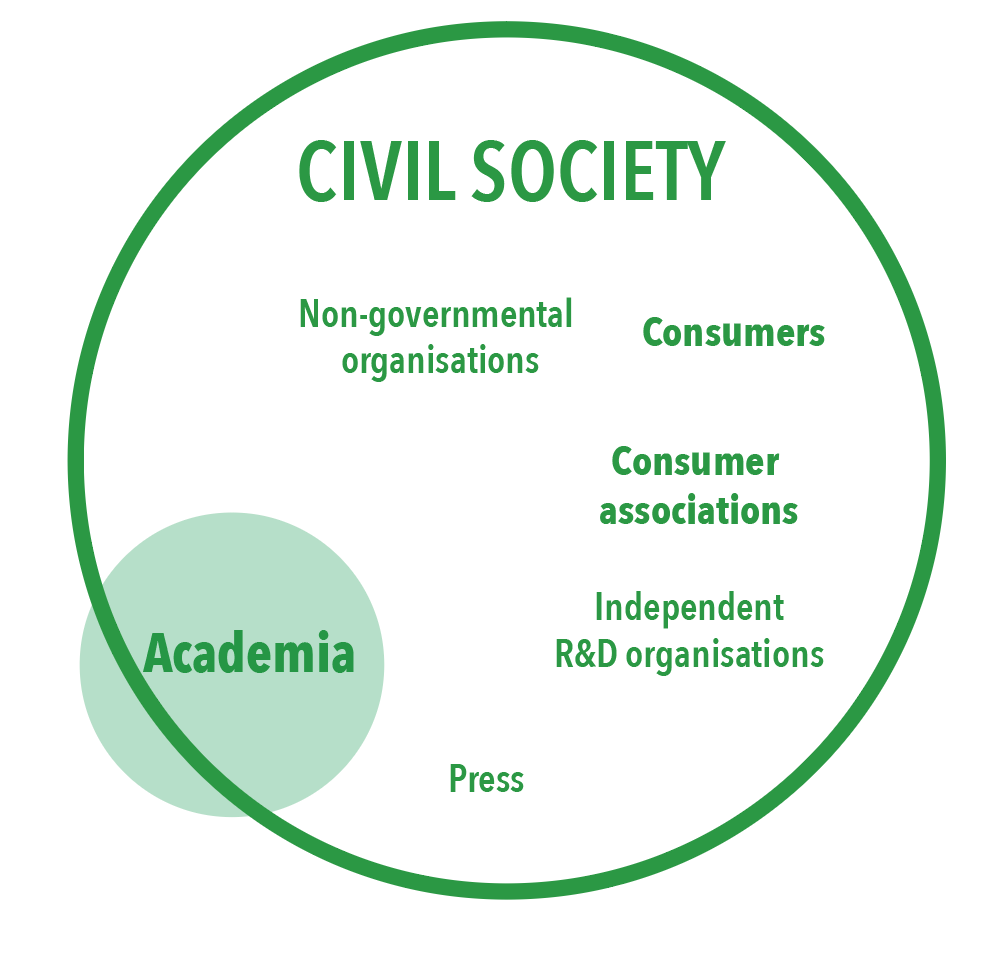
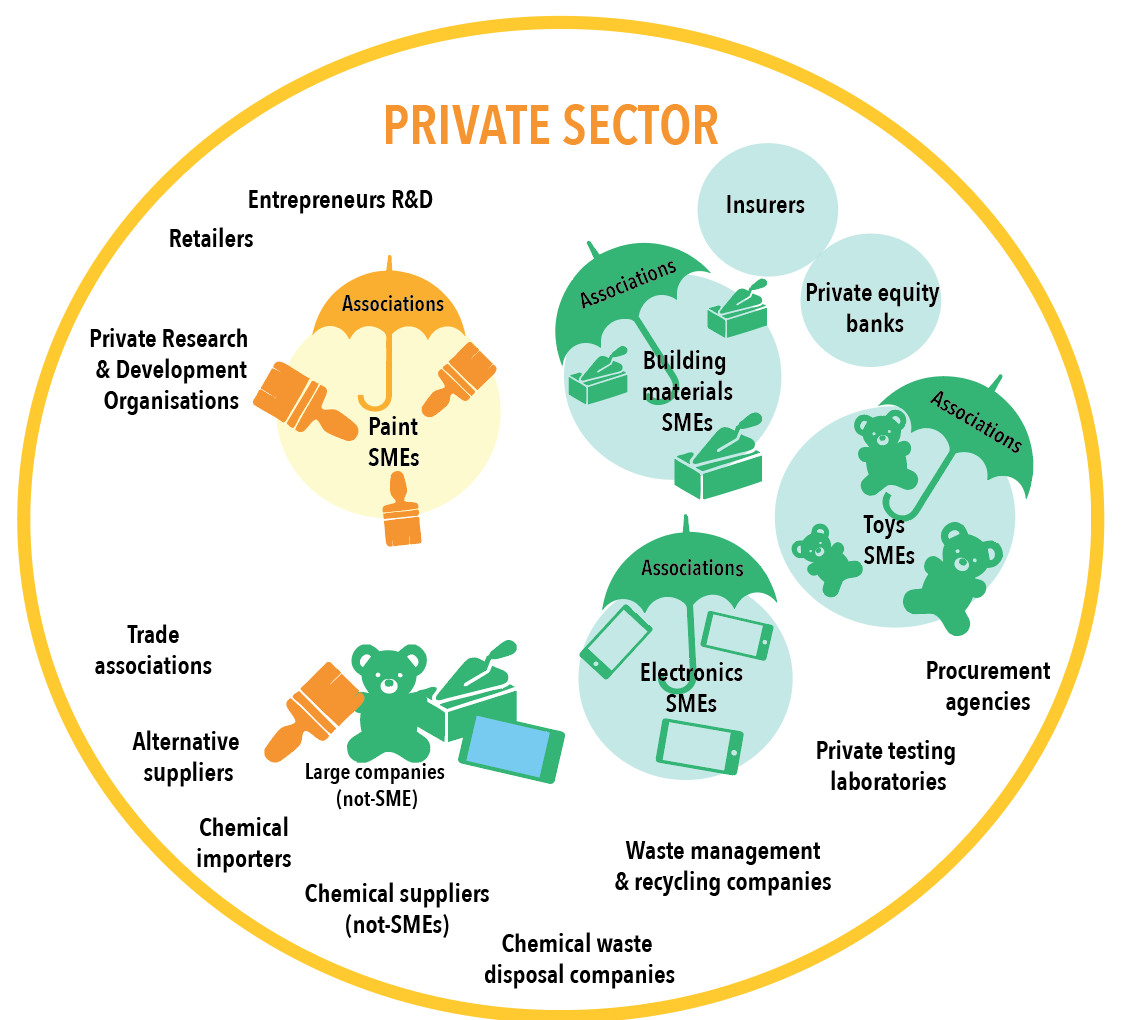
Project partners
American Bar Association Rule of Law Initiative (ABA ROLI)
Green Electronics Council
Global Green Knowledge Platform
International Pollutants Elimination Network (IPEN)
World Coatings Council (previously IPPIC)
International Institute for Sustainable Development (IISD)
International Sustainable Chemistry Collaborative Centre (ISC3)
National Cleaner Production Centres (NCPCs)
One Planet Network
Secretariat of the Economic Organization of West African States (ECOWAS)
UN Environment Chemicals and Health Branch
UN Environment Resources and Market Branch
UN Environment Finance Initiative
University of Cape Town
US Environmental Protection Agency (USEPA)
World Health Organization
USEtox International Center
Life Cycle Initiative
-
Steps toward adoption of national lead paint laws
Angela BandemehrThe Secretariat of the Strategic Approach to Chemicals Management (SAICM) and the University of Cape Town (UCT) are launching a new Community of Practice (CoP) on Lead in Paint to bring representatives from different sectors together and to create a learning network around issues related to the elimination of Lead Paint. This is a summary of the discussion on Steps toward adoption of national lead paint laws, which took place on 9 July 2020. Read More -
Perspectives on addressing HHPs in the SAICM context
The SAICM Secretariat, in partnership with the University of Cape Town, established a community of practice on Highly Hazardous Pesticides (HHPs) to foster discussions, exchange of best practices, and recommendations to address HHPs amongst relevant stakeholders. This is a summary of the discussion on Perspectives on addressing HHPs in the SAICM context, which took place on 19 August 2020. Read More -
Mapping the global landscape of HHP risk reduction work
The SAICM Secretariat, in partnership with the University of Cape Town, established a community of practice on Highly Hazardous Pesticides (HHPs) to Read More -
Brief guide to analytical methods for measuring lead in blood (Second edition)
Lead is a toxic metal whose widespread use has caused extensive environmental contamination and health problems in many parts of the world. Lead is a Read More -
Infographics on Highly Hazardous Pesticides
It's time to regulate Highly Hazardous Pesticides!It won’t compromise agriculture, but it will save lives.This document was prepared by WHO under the Read More -
Global elimination of lead paint: why and how countries should take action - Policy brief
Lead has toxic effects on almost all body systems and is especially harmful for children and pregnant women. Lead paint is an avoidable source of Read More -
Global elimination of lead paint: why and how countries should take action - Technical brief
This document has been developed for officials in government who have a role in regulating lead paint, to provide them with concise technical Read More -
Study of the Paint Market in Colombia (Draft / Spanish only)
Las pinturas se han convertido en parte esencial del estilo de vida de la sociedad moderna, el color de ellas es apetecido por sus funciones estéticas Read More -
Suggested Considerations for Legal Drafting Process (Draft)
In response to questions received by the Global Lead Paint Alliance (GLPA) on roadmaps for developing regulations on lead content in paint, the GLPA Read More -
Report of the 2019 International Lead poisoning Prevention Week
From 20 to 26 October 2019 the seventh International Lead Poisoning Prevention Week of action (ILPPW) took place in countries around the world. This Read More
- ‹ previous
- 2 of 14
- next ›


